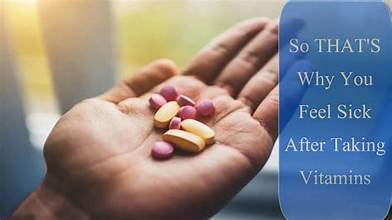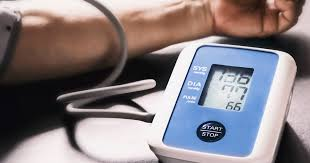Knowing the early signs of a stroke or heart attack is very important. These are medical emergencies where every second counts. Quick action can make a big difference in how well someone recovers.
Often, people think strokes and heart attacks happen with no warning. But sometimes, your body can send subtle signals before a significant health event. These signs are not the same for everyone. Still, they can indicate a higher risk or even that a serious event is imminent.
What do these hidden signals look like? Why is it so vital to understand them? Spotting these signs early can lead to life-saving medical help.
Understanding the Cardiovascular System’s Stress Signals
How the Heart Works and When It’s Under Strain
Your heart is a strong muscle. It pumps blood all over your body. This blood carries oxygen and the food your body needs. When things like blocked arteries happen, your heart has to work much harder. These blockages can be in the coronary arteries, the special blood vessels that feed your heart. Also, if the heart’s electrical signals get out of whack, it can cause problems. This extra work or bad signals put your heart under great strain.
The Brain’s Vulnerability to Blood Flow Interruption
Your brain needs a steady flow of oxygen-rich blood. It cannot go long without it. If this blood supply stops or gets cut off, brain cells quickly start to die. This is what causes a stroke. Strokes can happen when a blood clot blocks a vessel (ischemic stroke). They can also occur if a blood vessel in the brain breaks and bleeds (hemorrhagic stroke). Both types are severe.
The Interplay Between Blood Pressure and Blood Flow
Blood pressure tells us a lot about your heart health. It is the force of blood pushing against your artery walls. If your blood pressure is too high for too long, it can harm blood vessels. If it’s too low, your body might not get enough blood. Significant changes or long-term high pressure can be a clear warning sign. This imbalance significantly raises the chance of a heart attack or a stroke.
Subtle Signs Preceding a Heart Attack
Unexplained Chest Discomfort or Pain
A heart attack can feel different than the classic “elephant on the chest.” You might feel a squeezing, fullness, or a heavy pressure in your chest. Some people describe it as an ache. This feeling can come and go. It can also spread to other parts of your body. Look for discomfort in your jaw, neck, arms, or back.
Non-Chest Symptoms: A Deeper Dive
Heart attacks can also show up without chest pain. You might feel short of breath, even if you are not doing anything active. Some people feel sick to their stomach, throw up, or have feelings like indigestion. Cold sweats are another sign. You could feel dizzy or lightheaded, too. Watch for extreme tiredness that won’t go away.
Warning Signs Specific to Women
Women often experience heart attack signs differently. Their symptoms can be much more subtle. Unusual tiredness is a common one for women. They might have trouble sleeping. Pain in the jaw or upper back, not just the chest, is also possible. These signs can happen without the typical chest pain that men often feel.
Recognizing the Early Indicators of a Stroke
The FAST Acronym and Its Significance
The FAST acronym helps you remember stroke signs. It stands for Face drooping, Arm weakness, Speech difficulty, and Time to call emergency services. If one side of the face sags when smiling, that’s Face drooping. If one arm drifts down when raised, that’s Arm weakness. If speech is slurred or hard to understand, that’s Speech difficulty. If you see any of these, it’s Time to call 911 right away.
Other Neurological Symptoms to Watch For
Other stroke signs can include sudden numbness or weakness. This often happens on only one side of your body. You might feel confused or have trouble understanding what someone is saying. A sudden problem with your vision in one or both eyes can be a sign. Watch out for a sudden, terrible headache with no apparent cause. Losing your balance or coordination without reason is also a red flag.
Transient Ischemic Attack (TIA): The “Mini-Stroke”
A TIA, or “mini-stroke,” happens when blood flow to the brain stops for a short time. It causes stroke-like signs. These signs then go away quickly. Even though they pass, TIAs are dire warnings. They mean you are at a much higher risk of a full stroke soon. If you have TIA signs, get medical help at once.
Lifestyle Factors and Risk Escalation
The Impact of High Blood Pressure and Cholesterol
High blood pressure and high cholesterol are major risk factors. They can make your arteries narrow and hard. This process is called hardening of the arteries. It makes it easier for blood clots to form, leading to blockages. These conditions often have no apparent signs until something bad happens. So, you might not know you have them.
Diabetes and Its Role in Cardiovascular Disease
Diabetes can harm your blood vessels and nerves over time. This damage makes you more likely to have a heart attack or a stroke. Keeping your blood sugar in check is very important. Reasonable blood sugar control can help lower these risks. It protects your heart and brain health.
The Dangers of Smoking and Obesity
Smoking damages blood vessels and raises blood pressure. This makes your heart work harder. Being very overweight or obese also brings many risks. It links to high blood pressure, high cholesterol, and diabetes. All of these significantly increase your chances of a heart attack or stroke. Giving up smoking and keeping a healthy weight are vital steps.
When to Seek Immediate Medical Help
Don’t Ignore Persistent or New Symptoms
If you feel any new or strange symptoms, do not just push them aside. Especially if they seem like signs of a stroke or heart attack. Your body is trying to tell you something important. Acting fast is key.
Calling Emergency Services: Your Most Crucial Action
If you or someone you are with shows signs of a stroke or heart attack, call 911 or your local emergency number right away. Do not try to drive yourself or the person to the hospital. Calling an ambulance means you get fast medical care on the way. It also ensures quicker treatment once you reach the hospital.
What to Expect When Help Arrives
When emergency help arrives, they will quickly assess your condition. Tell them clearly what symptoms you felt and when they started. This information helps them understand what is happening. It allows them to begin proper care immediately.
Conclusion
Learning the common and subtle warning signs of a stroke or heart attack is very important. These signs do not mean you have one. But they are strong hints that you need medical help right away.
Your quickest action can save a life. Call emergency services without delay. Fast treatment greatly improves how well someone recovers. It can also prevent lasting harm.
Always listen to your body. Take steps to keep your heart and brain healthy. This includes good lifestyle choices and regular check-ups with your doctor.
Discover more from Healthinfo24.com
Subscribe to get the latest posts sent to your email.




Christopher1534
https://shorturl.fm/jbYEw